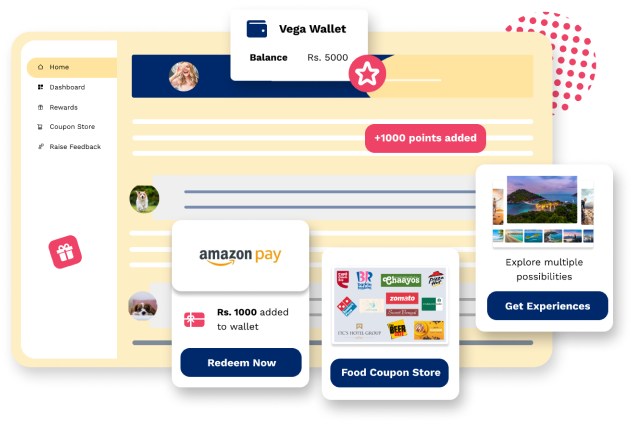Introduction
5 Tips for Successful Talent Management in Remote Work Conditions
Every business aspect continuously experiences significant changes due to the pandemic. Talent management is no exception. As the pandemic carries risks and uncertainties, organizations need to adapt in a way that demonstrates empathy and care for employees in the hopes of reducing turnover. Reports reveal that most companies struggle with employee turnover, with most workers quitting their jobs due to better offers, unsuitable working hours, and lack of advancement opportunities.
Excessive turnover rates can damage your business as cost estimates of replacing an employee equates to about one-third of that worker's compensation. Therefore, business managers should know how to manage an employee remotely to reduce turnover rates and ensure continuous operations. This article will provide several tips every organization can implement to ensure successful talent management in remote work conditions.
Set Clear Expectations
The pandemic is already brimming with uncertainties. The last thing a business can do is add more confusion to its employees. Establishing clear employee expectations reduces or eliminates chaos and increases accountability for remote workers. While a lack of defined expectations provides your employees independence and autonomy, doing so can sabotage their ability to take ownership of their roles.
Setting expectations empowers managers to create a baseline for success and ensure everyone is on the same page while simultaneously enhancing communication and employee engagement.
Studies show that employees with clear guidelines from their managers are happier and more engaged in the workplace. It also allows for objective criticism and benchmarking since the consequences of not meeting specific goals are already known by everyone involved.
Establish a Performance Management Plan
An agile performance management plan is vital in overcoming the challenges of managing remote employees, making it among the top trends shaping the future performance management in 2021. By creating a robust performance management system, businesses can identify good or bad performers. It can also assist management in identifying training needs and making personnel decisions.
One way to establish a robust performance management plan is to create a policy for how frequently remote employees will get a performance review. Ensure that the appraisal is based on company values and mission, individual job descriptions, and a comprehensive narrative of its strengths and weaknesses. Frequent performance reviews help managers avoid poor business decisions and ensure high-performers continuously receive recognition to reduce turnover rates.
Optimize Employee Communication
Employee communication is getting more difficult with so many issues affecting the free flow of information during the pandemic. However, communicating with employees is becoming more critical than ever. It builds empathy, transparency, and urgency, which are pillars in helping everyone adjust to changing conditions.
A rule of thumb in optimizing employee communication is to communicate more frequently to reduce fear and uncertainty. Although repeating core messages might seem unnecessary, doing so provides clarity or direction and resolves conflicts and prevents potential ones from arising. When employees understand their roles, they can manage the workload with less guidance and ensure increased productivity. Optimizing employee communication also allows your workforce to internalize organizational values and give their feedback to the company, resulting in a more cohesive and open culture.
Provide Continuous Employee Training and Development
The business changes of the pandemic can be a lot to take in that most organizations often neglect the importance of employee training and development. However, employee growth is becoming more critical than ever with the pandemic and ensuing crisis requiring workers to have a host of unique skills and capabilities to remain competitive. Thus, organizations must create a strategic approach around upskilling and reskilling employees to close the skill gap and enhance satisfaction.
When employees can grow and advance career goals with your company, they can effectively face unforeseen situations, adverse conditions, and uncertainty. Continuous training can also make an organization more competitive to attract top talents and become more profitable in the long term. Reports indicate that organizations that provide ongoing training experienced a 37% rise in revenue per employee and over 8% in gross profit margins.
Use Talent Management Software
Digital talent management can be challenging and time-consuming, with so many metrics for businesses to track. Using talent management software solutions is essential in reducing time spent on administrative tasks and integrating and aligning core human resource (HR) processes. With a talent management system, businesses can monitor and manage candidates and employees' recruitment, development, and performance.
It can also generate critical insights and analytics, which can help employers in decisions related to raises, promotions, and training. Unfortunately, talent management software solutions are a dime a dozen and choosing the right platform requires time and conscious effort. An excellent way to select the right talent management software is to perform in-depth research and read online reviews.
Managing Remote Talents Effectively
Achieving successful talent management is becoming more challenging as rapid changes and transitions to a remote work setting become the norm. For organizations to remain competitive, they must learn to use digital tools to automate processes, reduce errors, and increase remote work efficiency. One of the tools to manage remote employees and help determine the ROI of technology investments in the hiring process is Vega HR.
Vega HR is a dynamic end-to-end HR and recruitment software designed to help hiring managers and recruiters manage talents and employees. It is brimming with artificial intelligence and machine learning capabilities which work conjointly to fuel collaboration and innovation between employees and employers. Vega HR offers a comprehensive product demonstration in addition to its Essential, Professional, and Enterprise packages, which are available on a quote basis.
About Vega HR
Vega-HR is a powerful tool in the talent war, offering employee rewards, recognition, and pulse recognition. With an engaging platform, it fosters a world-class work culture, providing P2P recognition, social feedback, on-spot recognition, and monetizable incentive solutions with 3000+ coupons in various categories.
Create a Culture People Want to Stick to
- Send rewards
- Give shoutouts
- Build a community
- Gift experiences
Get a demo
 Written by Jenny Dabon 06 October 2022 | 4 min read
Written by Jenny Dabon 06 October 2022 | 4 min read




